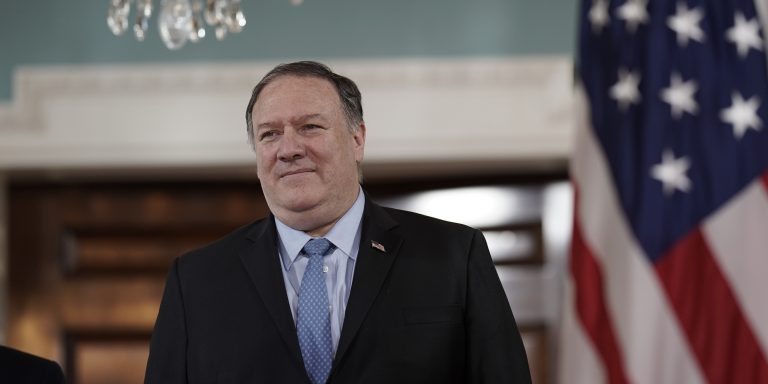INTELBRIEF
May 13, 2019
IntelBrief: A Changing Mission at the Department of State?

- The U.S. State Department is reportedly increasing its counterterrorism efforts, even as its diplomatic portfolio is further reduced.
- The State Department’s Antiterrorism Assistance program (ATA) has long served as a critical component of the department’s liaison efforts.
- However, the Trump administration’s open disdain for diplomacy works at cross-purposes to the soft power of the State Department’s cultural outreach.
- While counterterrorism assistance is vital, empowering local communities to address systemic issues of extremism and poor governance is more so.
.
The U.S. has long prioritized hard power and kinetic operations over soft power initiatives, but the imbalance is becoming even more pronounced as the Trump administration regularly flaunts its disdain for traditional diplomacy. Given the scope of its mission, the State Department (DoS) is already under-resourced and often relegated to an afterthought, while the Department of Defense (DoD) is prioritized in foreign policy decision-making and matters of national security. Foggy Bottom is also understaffed, perpetually plagued by personnel issues in the highest echelons of its leadership, including ambassadors and career foreign service officers.
The Wall Street Journal recently reported on an expansion of DoS’ program to assist host-nation governments in their efforts to combat a range of security challenges, including terrorism and political violence. The department’s Antiterrorism Assistance program, or ATA, provides training and equipment to local liaison partners in countries from Jordan to Indonesia, in an equivalent role to the DoD’s train and equip efforts. The ATA program was started in 1983 and, according to the State Department, more than 90,000 trainees from 154 countries have gone through ATA courses and received various forms of training. According to the article in the Wall Street Journal, the State Department is creating several new permanent training centers, modeled on the first one in Jordan, which was established to train Iraqi security forces in 2003. A second training center has since been added in Jordan. The department opened an ATA center in Senegal in 2018 to help combat the dramatic spike in extremist violence in the region, particularly in neighboring Mali. The State Department plans to open an ATA training center in Kenya to assist in efforts to counter the persistent threat from groups such as al-Shabaab. Another center is scheduled to launch in the Philippines to help that country combat its own serious threats, including groups such as offshoots of the so-called Islamic State to a range of other militant groups active in the region.
These efforts are essential, and given the rise in the instability in the Sahel and Southeast Asia, the ATA programs should be well-resourced, while also receiving closer oversight. In the past, the ATA program has been criticized for lack of transparency. Moreover, there have been few studies that have demonstrated an empirical evidence base for whether these programs are effective in accomplishing their objectives, with major obstacles plaguing efforts to assess, measure, and evaluate progress or lack thereof. The Trump administration is attempting to curtail the State Department’s portfolio, as well as limit the role played by the U.S. Agency for International Development (USAID), with a proposed budget that calls for a 25% reduction to the latter’s budget. And while these cuts may not actually materialize, especially given Congressional support for the vital work of the two departments, even the proposed rollback is enough to send a message to these agencies while negatively impacting morale.
The issues that the ATA programs seek to help countries address—conflict and terrorism—are exacerbated by factors including corruption, weak governance, sectarianism and the absence of the rule of law. Addressing these issues requires more than just military force; the solution will require the soft power of diplomacy, international development, and foreign aid as complementary approaches to empower change at the local level. While DoD focuses on partnering with allied militaries, DoS is responsible for working with local law enforcement agencies and police forces, focusing on the fundamentals of internal security.
.
For tailored research and analysis, please contact: info@thesoufancenter.org
[video width="960" height="540" mp4="https://thesoufancenter.org/wp-content/uploads/2019/05/IB-0513.mp4" poster="https://thesoufancenter.org/wp-content/uploads/2019/05/AP_19129795101218.jpg"][/video]